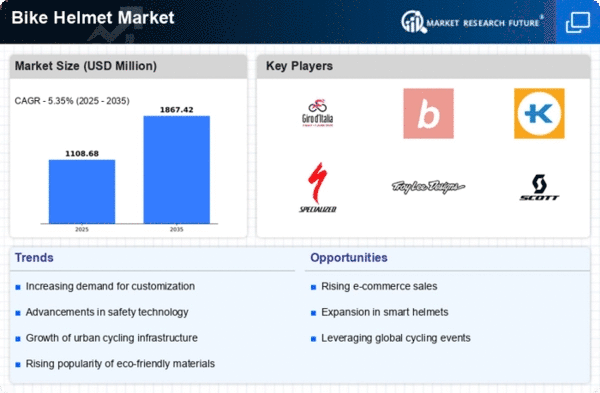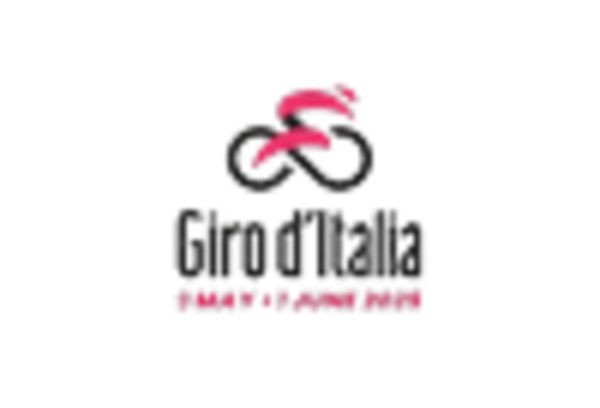Market Share
Bike Helmet Market Share Analysis
The bike helmet market is witnessing a transformative shift driven by evolving consumer preferences, technological advancements, and regulatory changes. One of the prominent trends shaping this market is the increasing emphasis on safety and protection. Heightened awareness about the risks associated with cycling has propelled a growing consciousness among consumers, compelling them to prioritize safety features in bike helmets. Manufacturers are responding by integrating cutting-edge technologies and innovative materials to enhance safety standards in helmets. From advanced impact protection systems like MIPS to airbag-equipped designs and augmented reality visors, these developments are revolutionizing the capabilities of bike helmets, offering consumers unprecedented levels of protection.
Moreover, customization and personalization have emerged as influential trends in the bike helmet market. Consumers seek helmets that not only provide safety but also align with their individual styles and preferences. Manufacturers are responding by offering a diverse range of designs, colors, and styles to cater to various consumer tastes. Customization options, such as interchangeable panels, graphics, and accessories, allow cyclists to personalize their helmets, reflecting their personalities while ensuring safety on the road.
Additionally, sustainability and eco-consciousness are driving forces in the bike helmet market. With an increasing focus on environmental conservation, consumers are gravitating towards helmets made from sustainable and recyclable materials. Manufacturers are embracing eco-friendly production practices, utilizing renewable resources and minimizing environmental impact in the manufacturing process. Helmets designed with eco-friendly materials not only cater to environmentally conscious consumers but also contribute to reducing the overall carbon footprint in the cycling industry.
Another significant trend is the integration of smart technology into bike helmets. The rise of wearable technology has paved the way for helmets equipped with features like built-in communication systems, GPS, LED lights, and health monitoring sensors. These smart helmets offer functionalities such as real-time navigation, hands-free communication, and monitoring vital health metrics, enhancing both safety and convenience for cyclists. Additionally, some helmets are equipped with crash detection systems that automatically alert emergency contacts in the event of an accident, providing added peace of mind to riders and their loved ones.


















Leave a Comment